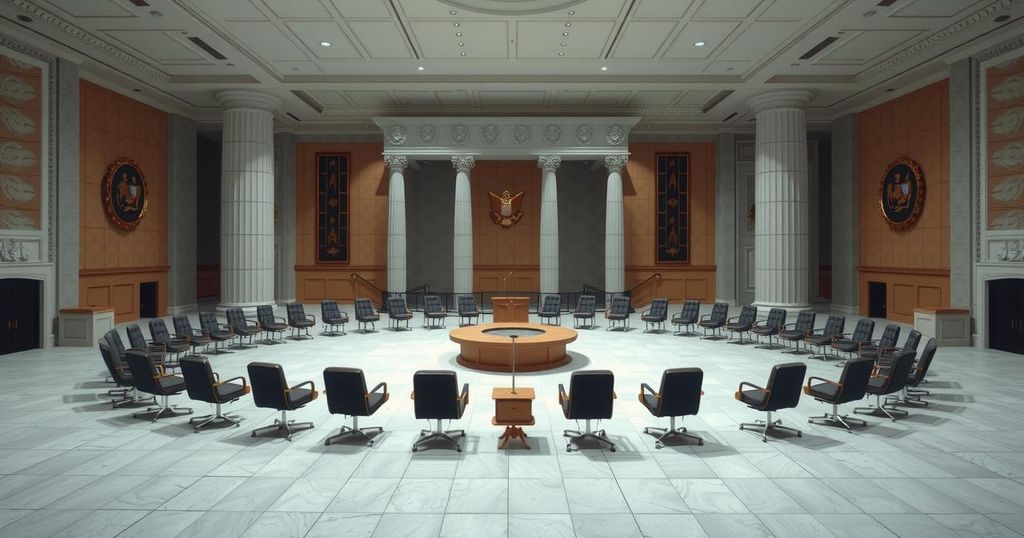South Sudan’s President Salva Kiir has dismissed Vice Presidents James Wani Igga and Hussein Abdelbagi along with the head of National Security, Akech Tong Aleu. New appointments include Benjamin Bol Mel and Josephine Lago Yang to the vice presidential roles. Wani Igga will serve as Secretary-General of SPLM, while Chiech Mayor is appointed as acting director general of security.
On Monday night, President Salva Kiir Mayardit of South Sudan issued a presidential decree dismissing Vice Presidents James Wani Igga and Hussein Abdelbagi, as well as National Security Service head Akech Tong Aleu. This announcement was made via the South Sudan Broadcasting Corporation.
In the wake of these changes, Benjamin Bol Mel has been appointed to succeed James Wani Igga as vice president, representing the ruling Sudan People’s Liberation Movement (SPLM). Additionally, Josephine Lago Yang has been designated to take over Abdelbagi’s role, which he had occupied since 2020, in accordance with the revitalized peace agreement.
Following his removal, Wani Igga has been reassigned to serve as the Secretary-General of the SPLM party. Meanwhile, Charles Chiech Mayor, who previously held the position of Deputy Director General within the National Security Service, has been appointed as the acting director general.
Akech Tong Aleu’s dismissal comes just four months after his appointment to the national security post. To date, no official reasons have been articulated for the dismissals of these senior government officials. Notably, South Sudan maintains a unique governmental structure with five vice presidents, a framework established after the 2018 peace agreement.
The dismissals by President Kiir illustrate significant shifts in South Sudan’s political landscape, particularly regarding key leadership roles within the government. These actions, devoid of clear explanations, may impact the execution of the peace agreement and the country’s stability, as political appointments continue to reflect internal party dynamics and power structures.
Original Source: www.aa.com.tr






